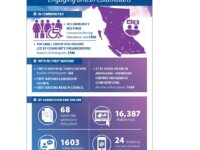Combining Design Thinking and Rapid Impact Evaluation methodologies allows for a user-centered counterfactual to measure the impact of the current program design, while simultaneously identifying programmatic design flaws and generating solutions for improvement. The participative process for co-developing the counterfactual triangulates multiple user perspectives and data sets to provide new lines of evidence to pursue innovative solutions and offer a more iterative approach to evaluation.
Innovation Tag: Process Facilitation and Co-design
The municipality of Zeist (approx. 64,000 inhabitants) faced the challenge of having to cut its spending by 6.2 million euros. A decision was made to take the innovative approach of engaging with citizens in a social discussion on possible spending cuts. Through this process of co-creation with its residents, the Zeist local authority not only managed to balance the budget, but it has also helped the local authority forge closer ties with the community and garner broader support for cutbacks.
Where organisations in the criminal law domain used to originally operate in a chain, things changed when a different approach to dealing with common crimes was adopted. The police, the Public Prosecutor's Office, victim support, and the probation service are all based at one single location, enabling them to handle complete cases within a time span of only nine hours. With this new working method, cases are kept simple, settled quickly, handled together, and treated as selectively as possible.
The municipality of Zuidhorn (now Westerkwartier) created the Child Package, based on the principles of Blockchain. The Child Package is a scheme intended for children from low-income households. Residents can log in on a website and use a QR-code to pay for child products at participating regional businesses.
Societal challenges such as demographic change affects rural areas in particular. The Social Foresight Lab is an innovative participatory approach towards rural development and technology transfer to address these challenges. It combines foresight, needs assessment and strategy development. Rural areas benefit, as it takes into account regional characteristics, initiates new cooperations among regional stakeholders, and integrates technological and social innovations into regional development.
Community Connects is a pilot project that came out of the Transportation Innovation Lab. Problem/Opportunity: Cape Breton Regional Municipality (CBRM) is a region with high levels of poverty and unemployment. Innovation: Taxi service, doorstep pick-up, defined drop-off points, flat rate: $7 seat. Why innovative? In short, the approach (social innovation lab) and those that were engaged (first-voice participants).
Case Study
Partnering for success: a regional monitoring system for social equity and inclusive development
A multistakeholder partnership created a regional indicators-based monitoring system to track pro-poor health policy change across the Southern African Development Community (SADC), a low-income region beset by socio-economic costs of a high disease burden. This stimulated SADC’s Result-Based Regional Monitoring and Evaluation initiative. Extending to all SADC priority areas, Results-Based Monitoring and Evaluation (RBME) enables real-time tracking of regional performance, documentation of…
Case Study
Engaging People with Lived Experience of Poverty to Build and Implement British Columbia’s First…

In 2016, British Columbia (B.C.) had the second highest poverty rate in Canada but was the only province without a poverty reduction strategy. To inform its first strategy, a new government completed the most extensive poverty engagement to date in Canada, focusing on people with lived experience of poverty.
To address barriers, B.C. used a range of innovative engagement approaches including direct supports for participants, dedicated Indigenous engagement and funding grants to non-profits.
There is a significant gap in Labour Market Information for people living on reserves in Canada. This Pilot project will improve the detail and timeliness of labour force information for on-reserve First Nations (FN) communities towards reducing the skills and employment gaps between First Nations and non-indigenous Canadians, through co-development.
The components to the Innovation are:
1.Annual survey of the entire on-reserve population 15 years or older
2.Skills inventory to support skills…
Employment and Social Development Canada (ESDC) led the design and implementation of a national poverty reduction strategy public engagement process. We offered Canadians multiple ways to share their views, from public town hall events to online discussions, to a youth contest, to an in-depth research project. The engagement process successfully reached thousands of Canadians in a short time frame on a low budget. The plan is now used as a Government of Canada model for effective civic…
